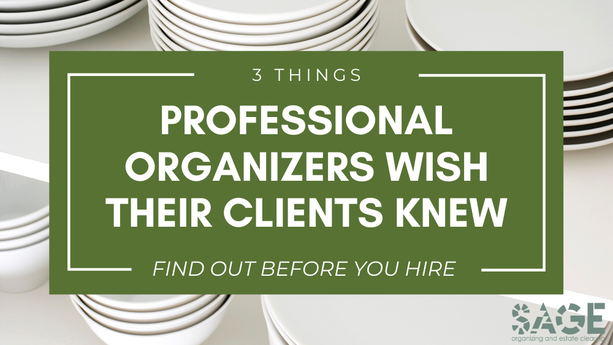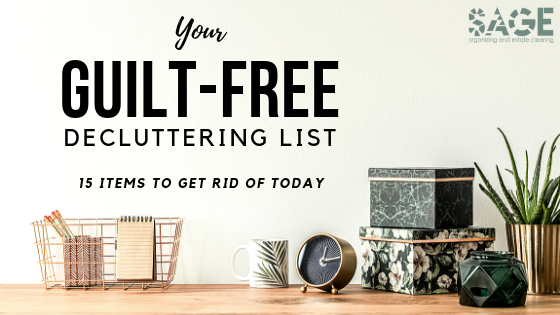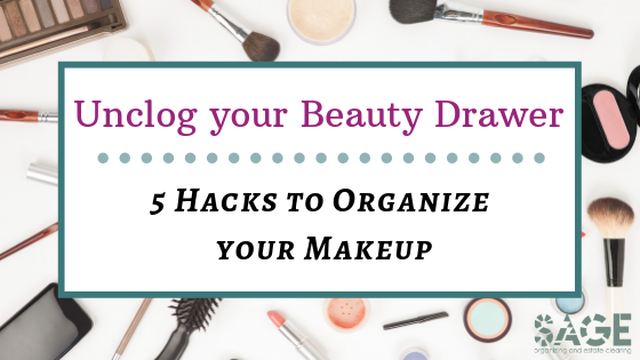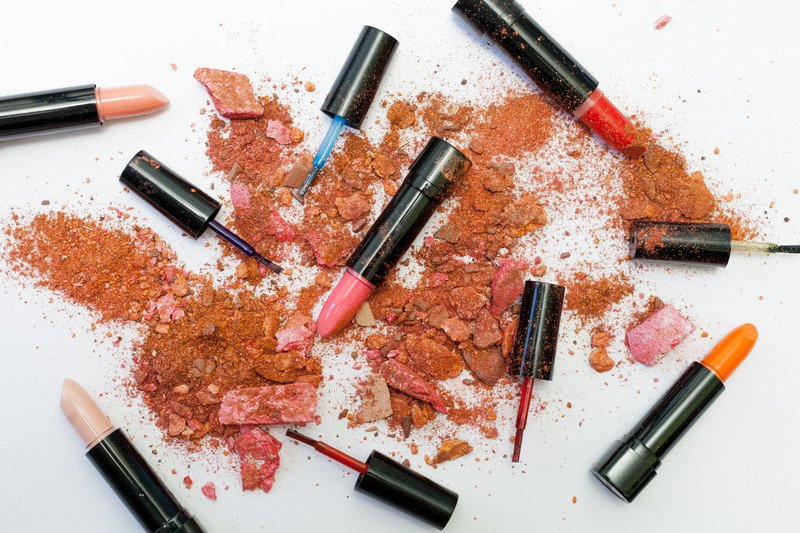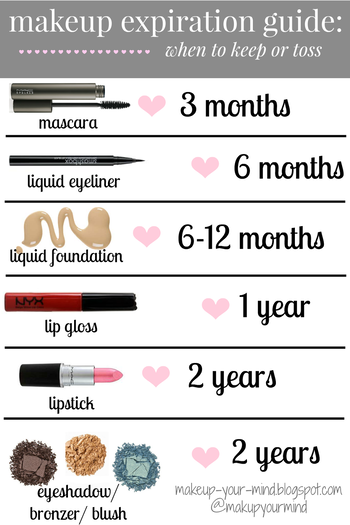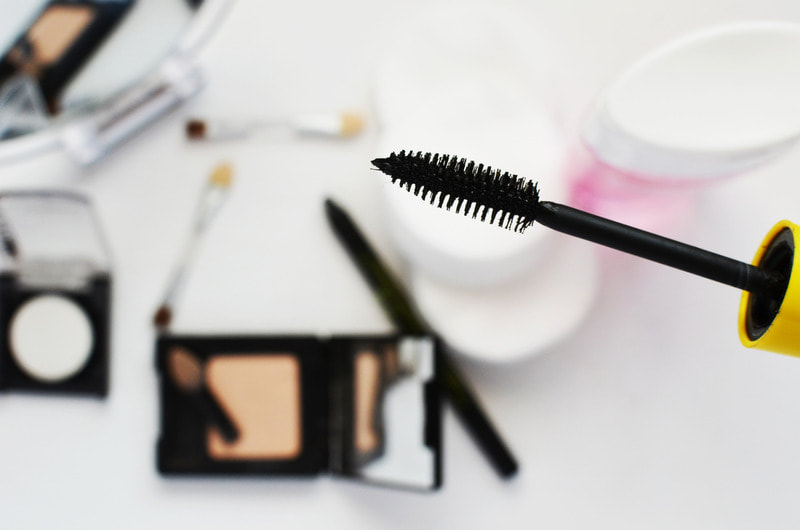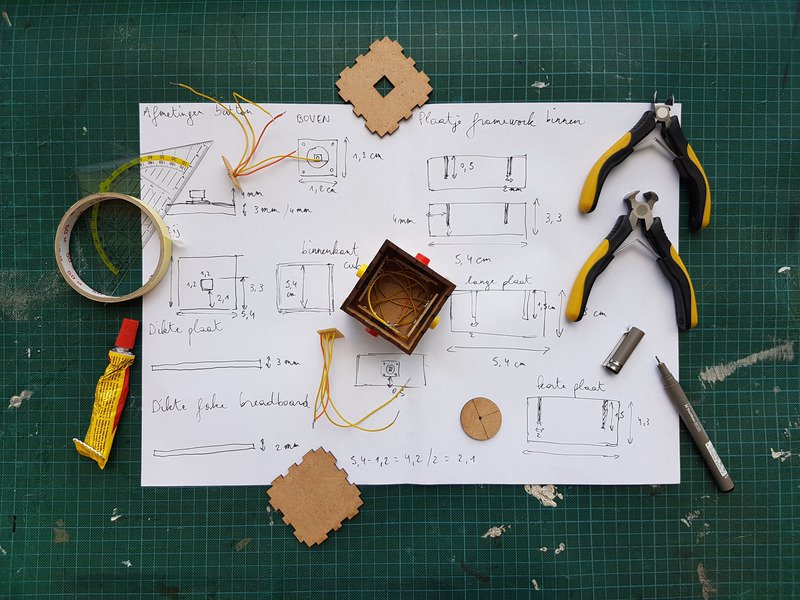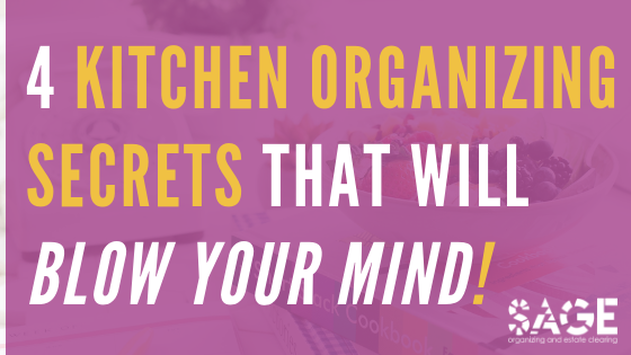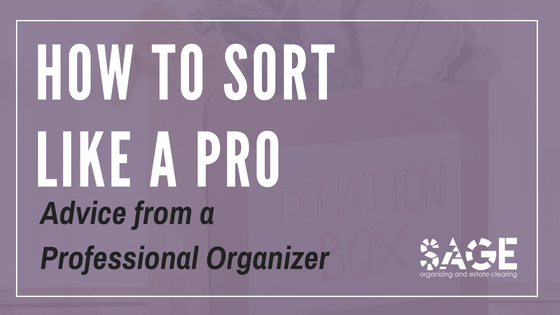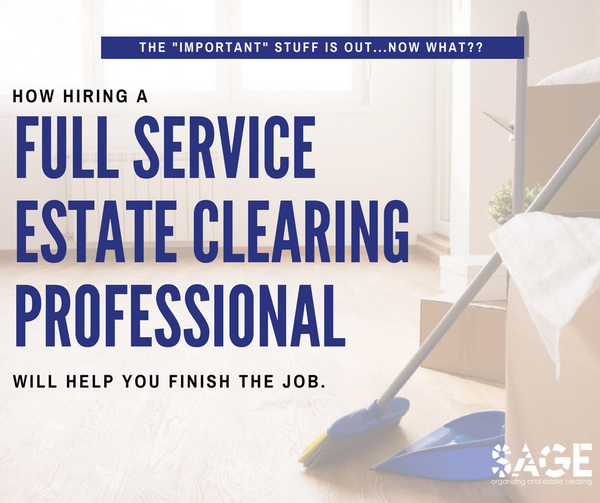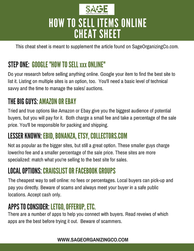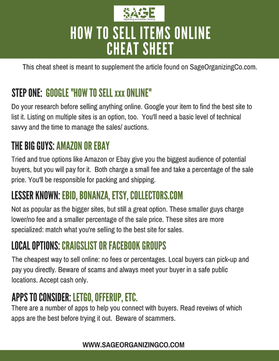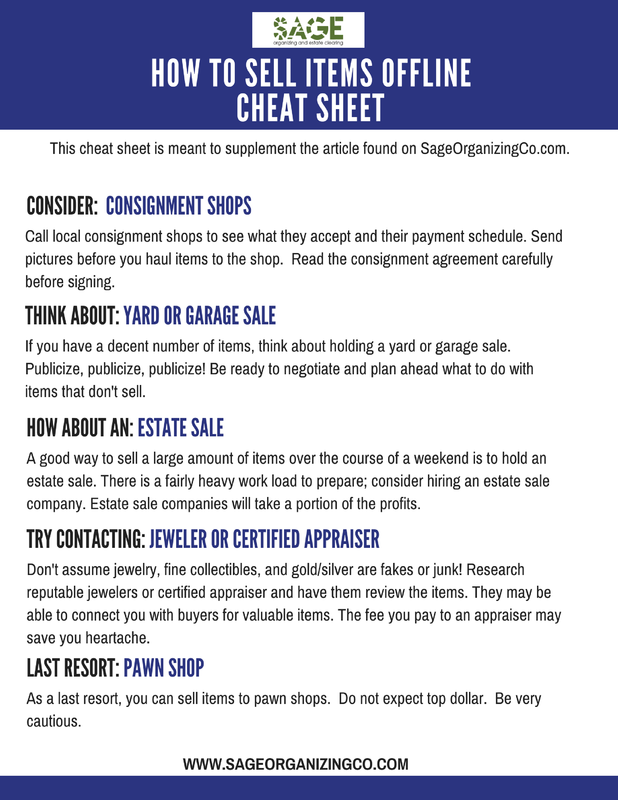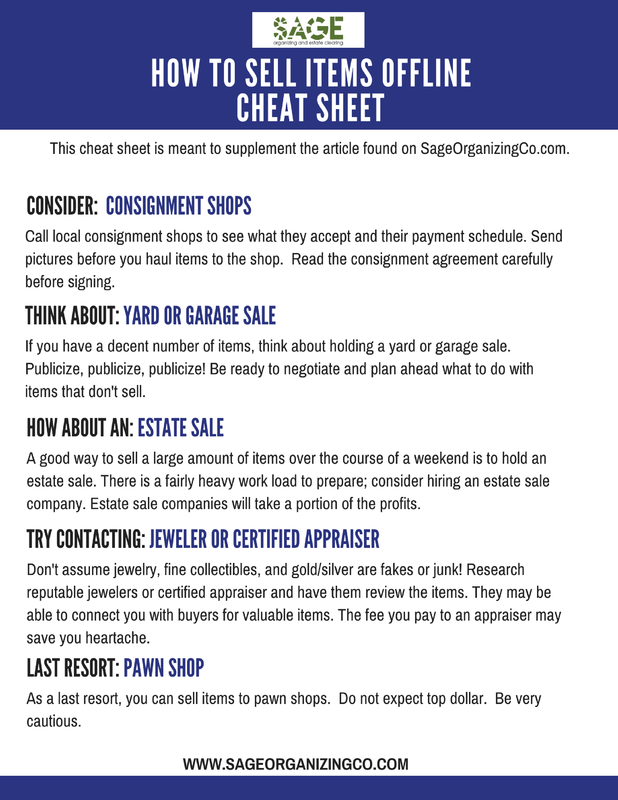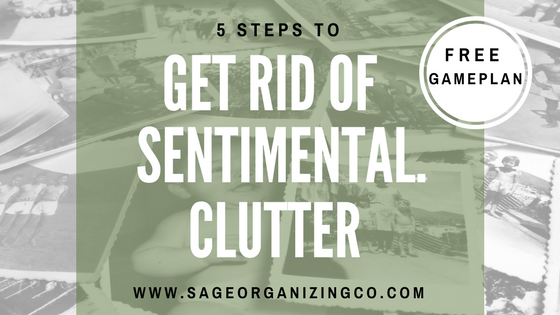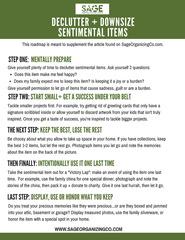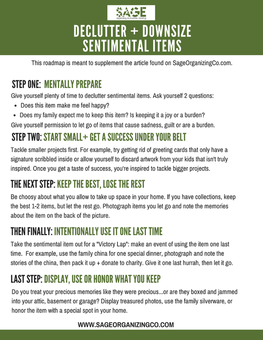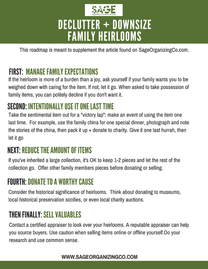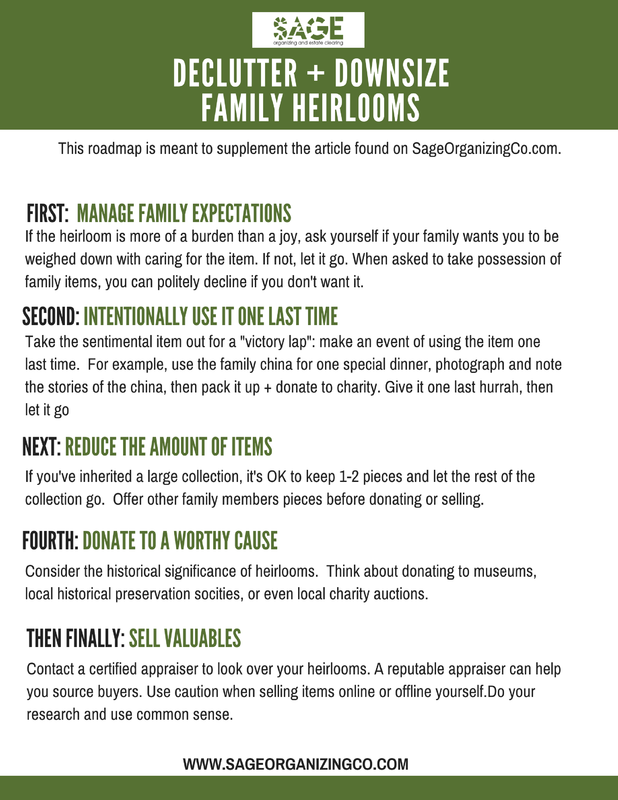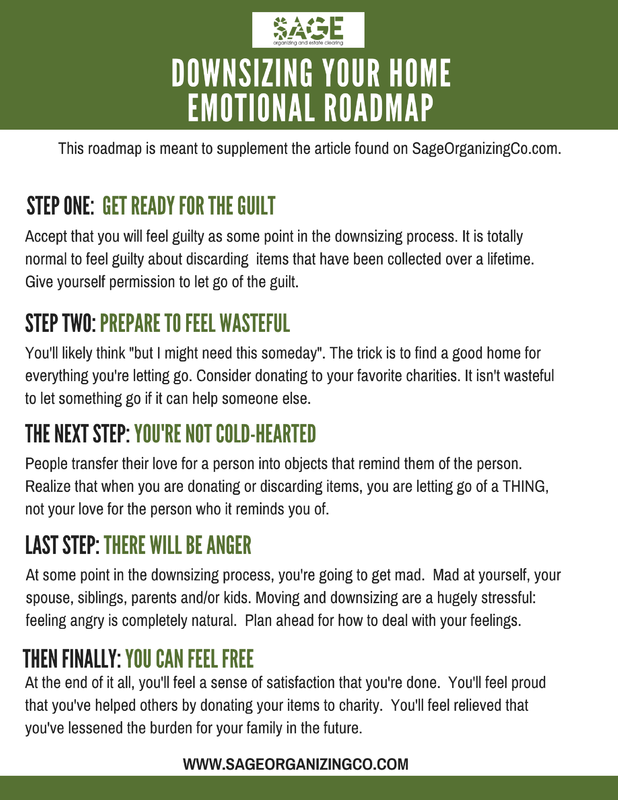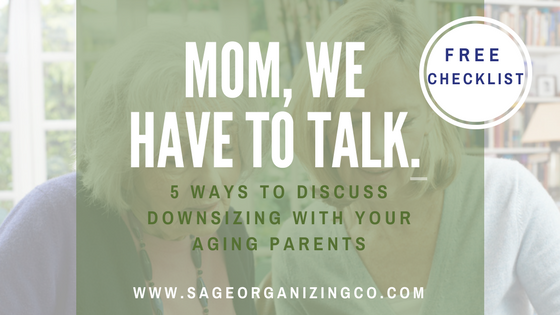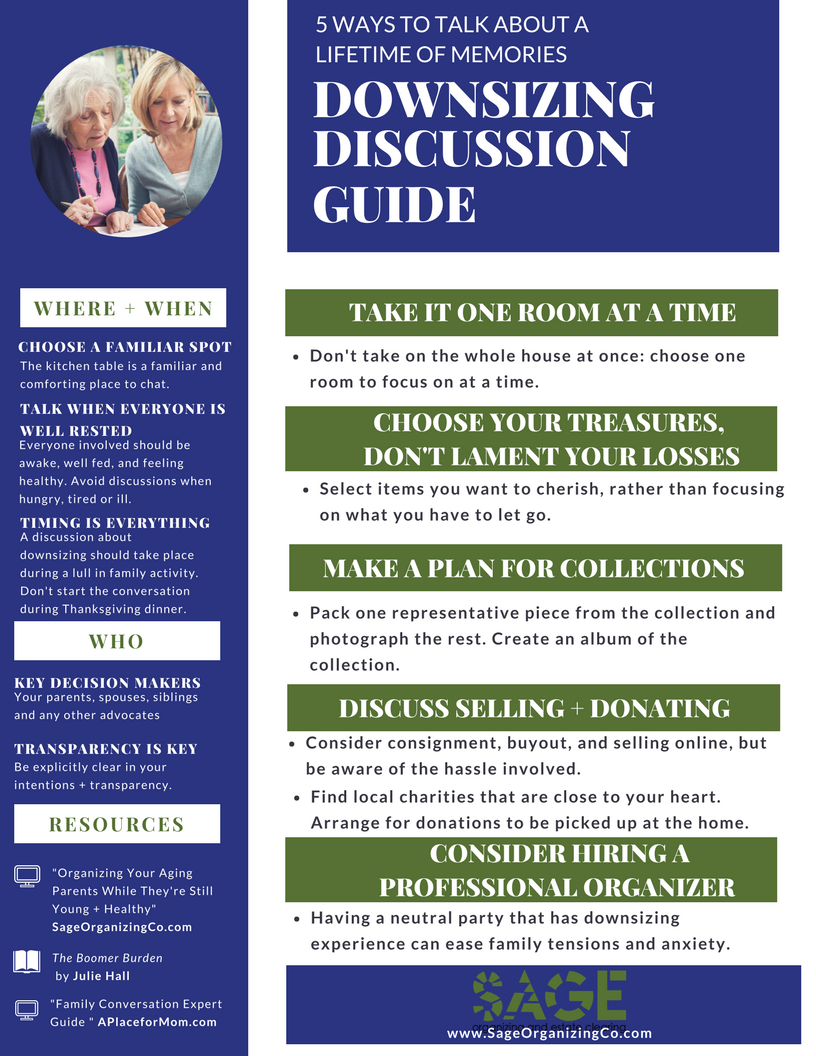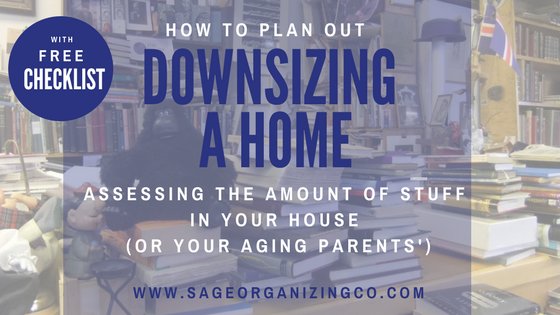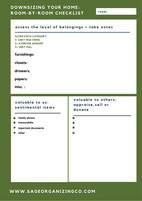|
You are not alone if the clutter in your home is too overwhelming for you to handle on your own. According to the National Association of Productivity & Organizing Professional (which your favorite professional organizer happens to be a member of *toots own horn*) 54 percent of America is overwhelmed by the amount of clutter they have, but 78 percent do not know to do with all of that stuff or find it too complicated to deal with it (2015). Hiring a professional organizer is an effective and efficient way to not only minimize your clutter, but also create a functional organization system in your home that can be maintained by you and your family. Professional organizers often go into "the biz" because they have a talent and eye for all things organization-- and yes, it's true, we really find satisfaction in organizing! Those beautiful "after" photos we create truly make our hearts soar and it's even better knowing we helped solve a problem for others. There are a few things all Professional Organizers want our clients to know before the organizing process begins. As an experienced Certified Professional Organizer® myself, I want to give you all a peek on the other side and help you prepare to work with a professional organizer, so I'm sharing with you 3 things Professional Organizers wish their clients knew. 1. If you're not willing to get rid of things, you're wasting your money. Before hiring a professional organizer, you need to be mentally prepared to donate and discard. Decluttering is an ESSENTIAL step in the organizing process. It may not be easy but you will have to relinquish a smidge of control and trust your professional organizer when they say "You really should part with *this.*" You are paying and hiring them for a reason! Your professional organizer will know how much needs to be given away/discarded and help you decide what you truly need. If you're not ready to reduce the number of items in your space, then your professional organizer will simply be rearranging rather than implementing an ideal organization system. 2. We are NOT judging the state of your home-- Honestly. Easily the most common hesitation people have about hiring a professional organizer is worrying they will judge your space. Professional organizers are the most organized people- right?! So they won't believe their eyes when they see such a chaotic home- right?! WRONG!! Professional organizers have seen it all, trust me, and even we have a disorderly spot in our homes. Nothing shocks us and we truly just want to help you. You may see a chaotic, cluttered, shameful closet-- we see an opportunity to use our skills, express our organizing creativity and make a client happy! 3. Doing the job right takes time Quality organizing work takes longer than you may think. The cluttered room did not happen in two hours, so it is not going to be fixed in two hours either. A good professional organizer will need ample time to get your space in tip-top shape. Pressuring an organizer to rush or requiring them to finish in an unreasonable amount of time will only result in either an unfinished job or half-assed work. Make sure to use the consultation (which most professional organizers require) to get a full understanding of the estimated time and cost necessary to achieve the results you're looking for. Budget and allow for the time to let us do our job and give you a high quality end result. I hope you enjoyed reading about the 3 things all professional organizers wish our clients knew! What questions do you have about the process of working with a professional organizer? Comment below! If you're looking for more organization ideas and tips, follow Sage Organizing Co. on Pinterest! Need more help with organizing your home or estate clearing? Contact us and book a consultation to start your organized life today! Professional Disclaimer: The ideas, recommendations, and opinions on this website, blog, and made in person are for educational and entertainment purposes only, and should not be considered legal, financial, or medical advice. I am not an attorney, doctor, or licensed financial professional. Sage Organizing Co., LLC is not liable for any losses or damages related to actions or failure to act related to the content of this website, blog, or in-person discussions. If you need specific legal, financial, or medical advice, consult a professional in your area.
0 Comments
Before you can get properly organized, it is important to declutter your home! Now wait, I can already hear you saying, "That's great Candi, but where do I START?!" I totally understand what you mean. It can be hard to decide what to give away and what to keep especially when we feel attached many items in our home. How many times have you thought, "Well, maybe I'll need this sometime in the distant future?" or "What if I regret/feel guilty about getting rid of this?" I know the feeling and that is why I am here to help! I have compiled a short list of 15 items you should NOT feel bad about getting rid of. Whether you are planning on moving, recently moved, or just plain tired of the disorganization, this list will guide you in starting to declutter your home. Some items on the list can definitely be thrown away, but I highly recommend you consider the condition of the item first and if it should be donated so that somebody else can benefit from it. Your GUILT-FREE Decluttering List 1. Old nail polishes and expired skincare/makeup 2. Clothing you haven't worn in years or clothing you bought years ago but never wore 3. Games and puzzles with missing pieces 4. Old children's toys and dog toys (this is important not only for decluttering but for sanitary purposes too!) 5. Books, including recipe books, that you don't plan on reading again or reading at all (be honest with yourself here) 6. Mostly empty cleaning supplies/bottles and condiment bottles 7. Broken jewelry or jewelry you never wear including watches 8. Old receipts, coupons, flyers, notes, and paper (If there is info you REALLY need, transfer it to a document on your computer/phone!) 9. Children's art work, completed school work, and old baby clothes... narrow down to just a few of these if you want memories or take photos on your phone. I know it can be hard, but you definitely don't need all of it! 10. Pens, markers, and any other craft supplies that are old or excessive 11. Old/frayed underwear, socks, and undergarments 12. Plastic bags from grocery and shopping stores 13. DVD's, CD's, and VCR tapes as well as old electronic players 14. Old, damaged cooking utensils such as spatulas and cooking spoons 15. Old or worn rugs, towels, and blankets (I especially like to switch out my old hand towels with new ones so I always have bright white and fresh towels in the bathroom!) Phew, and that's it folks! Of course, this isn't a comprehensive list for everything you need to get rid of, but it's a good place to start. And, let me remind you one last time, you do NOT need to feel guilty about throwing away or donating any of the items I listed! If you're looking for more organization ideas and tips, follow Sage Organizing Co. onPinterest! Need more help with organizing your home? Contact us and book a consultation to start your organized life today!
Professional Disclaimer: The ideas, recommendations, and opinions on this website, blog, and made in person are for educational and entertainment purposes only, and should not be considered legal, financial, or medical advice. I am not an attorney, doctor, or licensed financial professional. Sage Organizing Co., LLC is not liable for any losses or damages related to actions or failure to act related to the content of this website, blog, or in-person discussions. If you need specific legal, financial, or medical advice, consult a professional in your area. Makeup: a love-hate relationship. It can be fun to experiment with new makeup products and try out the trendiest lipstick shades, but after the shopping-adrenaline wears off, the sheer number of cosmetic products we each own can be truly overwhelming. Concealers, foundations, eyeshadows, eyeliners, mascaras, blushes, bronzers- the majority of our makeup comes in small, individual containers. With all these small products, it can be hard to have a functional cosmetic organization system. Stop feeling like your makeup storage is grimy and embarrassing and follow these 5 hacks for a clean, organized space to hold your makeup goodies: 1. Throw away all expired makeup/makeup you don't useA lot of people don't realize that makeup products expire. Each item of makeup should have a small picture of container on it with how many months the makeup is good for. For instance, the back of my bronzer says "24M" inside the picture of the container meaning it expires in 24 months. Keeping old makeup not only clogs up your pores, it clogs up your storage too! While you are checking the expiration dates on your products, also think, "When was the last time I used this?" Just because it isn't expired, doesn't mean it deserves a place in your drawer. It can be hard to part with makeup but once you throw away makeup you aren't using, it will make you more conscious the next time you go shopping. Check out this chart to help if you still have questions about when your makeup expires!
|
|
Leigh Bryant is the Director of Sales and Expansion Partner for The Temple Team in Charlotte, NC. Contact her here.
|
Ready to learn the Kitchen Organizing Tips that will amaze you? Read on...
Secret #1: Organize Your Kitchen Into Work Zones
Ideas for kitchen work zones:
Dishwasher and Sink
What: Cleaning products, dish towels, everyday plates, bowls, silverware and glasses.
Why: Keep items closest to where they are most frequently used. Choose cabinets, shelves, and drawers near the dishwasher to make unloading efficient and easy.
Cooking and Stove
What: Pots, pans, bake ware, and cooking utensils, and frequently used spices/oils.
Why: Reduce the movement needed when cooking hot foods. Choose deep cabinets for pots and pans. Store bake ware near oven.
Food Prep Zone
What: Cutting boards, mixing bowls, Tupperware, knife block, often-used counter top appliances.
Why: Keep everything you need to prep your meals within arms reach. Keep appliances that are used daily on the counter top; everything else should be stored in cupboards and drawers
Food Storage Zone
What: Shelf stable foods and food wraps. Usually stored on pantry shelves.
Why: Keeping all food in the same area allows you to see when you’re out or running low. Organize foods by category (e.g. all baking items together, all canned goods, snacks, etc.)
The Rest
What: Everything else should be filled in in the remaining available spaces.
Why: All the often-used items have been put away. Now put the rest away in the high, low and tough-to-get to spots.
Secret #2: The Countertop is Prime Real Estate
For example, if you’re a daily coffee drinker, your coffeemaker should be on the counter top. (Pro tip: store your coffee mugs, coffee, and filters in the cabinet directly above the coffee maker for easy access). Same thing goes for a toaster: if you enjoy toast daily, leave the toaster on the counter top and store the butter dish in the cabinet above it.
The counters around the kitchen sink deserve some counter space, since many items are used all day long. Dish soap, hand soap, and paper towels all belong right next to the sink. Keeping neatly folded dish towels in a small basket near the sink is another option.
Be honest with how often you really use small appliances. Just because you make a panini once a month does not warrant a space on the counter for the Breville. If you make smoothies only on the weekend, do not leave the blender on the counter all week. Store your lesser-used appliances in cabinets and pantry shelves.
How to Sort Like a Pro: Advice from a Professional Organizer
Declutter, Donate, and Deduct
Hoarder, Pack-rat, or Just Messy: 3 Ways to Tell the Difference
How to Beautifully Stage Your Home So it Sells in a Flash
Secret #3: Allow Yourself a “Junk Drawer”, but organize it!
Frequently used “junk drawer” items ideas:
- Stamps
- Pens, pencils, rubber bands, paper clips and twist ties
- Batteries
- Notepads and post-its
- Gum, mints, and ChapStik
- Scissors and tape
- Chargers and earbuds
- Loose change
- Birthday candles and matches
- Small hand tools, nails and screws
- Flashlights
And One More Secret: Enough with all the Duplicate Items!
What about items that are used once a year (e.g. only pulled out at Thanksgiving)? Ask yourself if you really use the item...or just used it once and not-so-much anymore. Be ruthless!
Have more than one actively-used set of these items? Consider boxing it up and donating to a good local charity.
- Kitchen utensils (e.g. spatulas, old paring knives, corkscrews)
- Glassware and coffee mugs.
- Tupperware and disposable plastic ware
- Pots and pans
- Old appliances that have have been replaced (e.g. your old 1980’s crock pot with the flowers on it).
6 Things to Not Bother Collecting Anymore (and How to Tell What IS Worth Holding Onto)
How to Sort Like a Pro: Advice from a Professional Organizer
You can Organize your kitchen!!
What's your favorite kitchen organization tip?
Professional Disclaimer: The ideas, recommendations, and opinions on this website, blog, and made in person are for educational and entertainment purposes only, and should not be considered legal, financial, or medical advice. I am not an attorney, doctor, or licensed financial professional. Sage Organizing Co., LLC is not liable for any losses or damages related to actions or failure to act related to the content of this website, blog, or in-person discussions. If you need specific legal, financial, or medical advice, consult a professional in your area.
Ready to learn a professional organizer's tips for Sorting? Read on...
Set yourself up for success
Tools/ Supplies Needed:
- Post-it notes (consider the heavy ones) and/or painters tape
- Color coded dots (for larger jobs)
- Sturdy boxes/Packing materials/Packing tape
- Sharpies
- Trash Bags (preferably heavy duty)
- Sturdy Step Stool
- Work gloves
- Work when not hungry or tired
- Set small attainable goals
- Make work area safe (trip hazards, pets, temperature, pests)
- Clean as you go or do regular spot clean-ups
Keep
Tools/ Supplies Needed:
- archival photo boxes and vital document storage
- long term storage solutions (like large Rubbermaid bins)
- short term storage solutions to sort into
*available space in actively used items
*temperature variation in for long term solutions
*transporting “keepers” to new location, if applicable
Sell
Tools/Supplies Needed:
- Internet connection
- Selling online? Think about packaging and shipping costs for the item.
- Consigning locally? Research how to transport items to the shop, the details of the contract, and how unsold items are disposed of.
- Safety first! Use caution when meeting strangers and exchanging money.
6 Things to Not Bother Collecting Anymore
Nobody Wants Family Heirlooms: What to Do When it Happens to You.
Gift These 5 Wonderful Experiences To the Ones You Love..Instead of Buying "Stuff"
Donate
Tools Needed:
- Post-its or colored dots
- Bags or sturdy boxes to transport the items
- Document, document, document. Itemize your donations if giving a large amount. Check outhow to easily keep track of donations here.
- Whenever possible, schedule a pick-up for items at your home.
- No pick-ups available? Immediately put the donations in your trunk and drop off on your next round of errands.
Discard
Tools Needed:
- heavy duty trash bags
- floor protections for larger jobs (spills and scrapes)
- broom/dustpan and vacuum
- recycling bins
- Household hazardous waste disposal
- City trash + recycling pick-up and standards
- Rental of a dumpster
- Bulky item collection
HOW TO DOWNSIZE YOUR HOME BEFORE MOVING
4 Smart Ideas to Sell Your Stuff Offline and 1 Really Dumb One
with free printable How to Sell Items Offline Cheat Sheet
5 Tips to Sell Your Stuff Online
with free printable How to Sell Items Online Cheat Sheet
YOU'RE ready to sort like a pro!
Professional Disclaimer: The ideas, recommendations, and opinions on this website, blog, and made in person are for educational and entertainment purposes only, and should not be considered legal, financial, or medical advice. I am not an attorney, doctor, or licensed financial professional. Sage Organizing Co., LLC is not liable for any losses or damages related to actions or failure to act related to the content of this website, blog, or in-person discussions. If you need specific legal, financial, or medical advice, consult a professional in your area.
Sometimes you can't do it on your own:
WHEN IT’S TIME TO THROW IN THE TOWEL AND HIRE AN ESTATE CLEARING PROFESSIONAL TO HELP YOU FINISH THE JOB.
- When a family member moves into senior care, leaving behind nearly 80% of possessions in the house that has been lived in for decades. The Power of Attorney (or similar authority) often takes on the responsibility of getting the remaining home cleared out and ready for market.
- After a family member passes away and the estate is ready to be cleared out. The Executor then is charged with emptying the home.
But sometimes that doesn’t work. Sometimes, you can’t do it on your own.
That’s when you need to consider an Estate Clearing Professional to finish the job for you.
Estate Clearing Professionals can step in at any stage and take care of all the details for you.
- Learn how you want all of the items in the house handled, then carry out your wishes for you.
- Arrange for appraisers, movers, shredding companies, waste disposal, cleaning companies, city services, and much more.
- Suggest local charitable groups to benefit from items your family chooses to donate. You’ll know your items are helping others in need.
- Provide you with itemized donations reports, which could save you thousands on your tax returns.
Learn more about estate clearing here.
Professional Disclaimer: The ideas, recommendations, and opinions on this website, blog, and made in person are for educational and entertainment purposes only, and should not be considered legal, financial, or medical advice. I am not an attorney, doctor, or licensed financial professional. Sage Organizing Co., LLC is not liable for any losses or damages related to actions or failure to act related to the content of this website, blog, or in-person discussions. If you need specific legal, financial, or medical advice, consult a professional in your area.
Declutter, Donate, and Deduct
Estate Sales Aren't Always the Answer: Why Estate Clearing Might Better Fit Your Needs
Nobody Want the Family Heirlooms: What to Do When it Happens to You
with free Declutter +Downsize Family Heirlooms Game Plan
Mentally Prepare for Downsizing Your Home: 4 Tips to Control Your Emotions
with printable Downsizing Your Home Emotional Roadmap
Today we are sharing our top 5 tips for selling your stuff online, and as a bonus, we’ve created a free download of How to Sell Your Items Online Cheat Sheet.
Are you Ready to Learn How to Sell Your Stuff Online? Read On.
|
Just for our readers, we’ve created this nifty How to Sell Your Items Online Cheat Sheet. Download and enjoy!
|
Step One: Google “How to Sell xxx Online”
You want to list your item on the site that has the biggest audience of potential buyers. For instance, if you were selling a set of golf clubs online, Ebay may be the best bet. But if you were selling custom hand-embroidered tea towels, Etsy is where you want to be. Selling antiques and collectibles often is easier on sites dedicated to those items.
The Big Guys: Ebay and Amazon
Both platforms have incredibly large audiences, thereby increasing your chances of selling your item quickly. There are fees associated with using both services, so be sure you are aware of what you are agreeing to before listing your items.
Nobody Want the Family Heirlooms
With Declutter +Downsize Family Heirlooms Game Plan
4 Smart Ideas to Sell Your Stuff Offline and 1 Really Dumb One
With How To Sell Items Offline Cheat Sheet
Sometimes You Can’t Do it on Your Own: When it’s Time to Throw in the Towel and Hire an Estate Clearing Professional to Help you Finish the Job.
Lesser Known: Ebid, Bonanza, Etsy, Collectors.com
Ebid is a site that is similar to Ebay, but doesn’t have the same amount of traffic. If you’re selling on Ebid, you’ll want to market your items elsewhere, too. On the plus side, however, EBid has lower fees than the big guys.
Bonanza is a great option for selling more unique and quirky items. Bonanza has a large audience, has no listing fee, and a low commission percentage compared to Ebay.
Collectors.com is a great option to sell your collectibles online.
Local Options: Craigslist or Facebook Groups
If you live in an area that has an active Craigslist community, try listing your item there. Photos are key to selling your items. Use common sense and caution when meeting with buyers: only accept cash and meet in public places.
If you live in a community without a lot of Craiglist action, selling your stuff in Facebook Groups is a great option. Find local Facebook groups to list your items and be sure to follow all the rules. You’ll keep all the profits of selling via Facebook
Estate Sales Aren't Always the Answer: Why Estate Clearing Might Better Fit Your Needs
5 Steps to Get Rid of Sentimental Clutter
With Declutter + Downsize Sentimental Items Game Plan
Mentally Prepare for Downsizing Your Home: 4 Tips to Control Your Emotions
With Downsizing Your Home Emotional Roadmap
Apps to Consider: Letgo, Offerup, Etc.
Apps like LetGo, OfferUp, and 5Miles, etc. are certainly options, however, many users complain about spammers, failure to show up to buy, etc. Be sure to read reviews from users before signing up for an app.
You Can Sell Your Stuff Online!
Leave a comment to let us know how your sale went!
Professional Disclaimer: The ideas, recommendations, and opinions on this website, blog, and made in person are for educational and entertainment purposes only, and should not be considered legal, financial, or medical advice. I am not an attorney, doctor, or licensed financial professional. Sage Organizing Co., LLC is not liable for any losses or damages related to actions or failure to act related to the content of this website, blog, or in-person discussions. If you need specific legal, financial, or medical advice, consult a professional in your area.
|
Download your free How to Sell Items Online Cheat Sheet here.
|
4 smart ideas to sell your stuff offline...and 1 really dumb one (with free printable cheat sheet)
3/5/2018
There are several reasons why you may choose to sell you stuff offline instead of online.
Maybe you have a huge amount of items to sell and don't want to deal with managing 100's of online sales. Perhaps the items, like furniture and antiques, are difficult to pack and ship. Or maybe the seller isn't comfortable with the technology of selling online.
READY TO LEARN THE 4 SMART IDEAS FOR SELLING YOUR STUFF OFFLINE? READ ON!
|
We are also sharing our How To Sell Items Offline Cheat Sheet with you today. Just click here to download.
|
1: Consider COnsignment Shops
Consignment shops generally are interested in good-condition furniture, antiques, and home décor. Always call the shop before hauling your items there to see if they are accepting new product. Sending pictures ahead of time is highly recommended.
If you enter into a contract with the consignment shop, they will handle the set-up, pricing and (usually) the remnants. You will receive your payment from them anywhere from 90-120 days.
Some drawbacks you may want to consider:
- You may have to haul the item to them.
- Most shops take a 40-50% commission on the item
- You may have to pick items up that don’t sell
2: Think about Yard or garage sales
There are a couple key points to having a successful yard sale:
- Advertise, advertise, advertise. Get the word out!
- Make your sale easy to shop. Organize like items together and display things neatly. No one likes to dig through boxes.
On the downside, yard sales can be a tremendous amount of set-up and tear-down work. Be ready to haggle: negotiating is part of the yard-sale culture. Be sure you have an “exit strategy” to discard or donate items that don’t sell.
Nobody Wants the Family Heirlooms: What to Do When It Happens to You
with free Declutter +Downsize Family Heirlooms Game Plan
5 Steps to Get Rid of Sentimental Clutter
including free printable game plan
3: HOw about an estate sale
Just like yard sales, it is vitally important to advertise as much as possible. The more traffic you have at your sale, the better your chances of selling things are.
Items should be displayed in an easy-to-shop way and clearly priced. Be ready to help customers haul their purchases out of the house.
Estate sales generally follow a structured price-reduction schedule (e.g. full price Friday and Saturday afternoon, 25% off Saturday night, 50%-75% on Sunday.). Be sure your customers are aware of how your sale is running to avoid problems.
4: Try contacting Jeweler or certified appraiser
Research reputable jewelers or certified personal property appraisers in your area and have them review the items. They may be able to connect you with buyers for valuable items.
Any fee you pay to an appraiser is worth saving you the heartache of accidentally throwing away a treasure.
Assess the Mess: How to Plan out Downsizing a Home
includes free printable checklist
Clutter Puts the Rage in Garage: 6 DIY Steps to Organize Your Garage
with Dream Garage Planner
The dumb idea? pawning your valuables
Chances are that an item you sell to a pawn shop will only get you 25% of the item’s value. You are far better off selling your items anywhere else. Don’t let reality TV shows give you the idea that you’ll make a great profit at a pawn shop.
Remember, if you sell your item to a pawn shop, they have the right to sell your item.
You are ready to sell your stuff offline!
Consigning, yard sales, and estate sales are a fair amount of work for you, but you’ll see cash in-hand fairly quickly.
Be sure to have a reputable jeweler or certified appraiser review items before throwing them out.
Professional Disclaimer: The ideas, recommendations, and opinions on this website, blog, and made in person are for educational and entertainment purposes only, and should not be considered legal, financial, or medical advice. I am not an attorney, doctor, or licensed financial professional. Sage Organizing Co., LLC is not liable for any losses or damages related to actions or failure to act related to the content of this website, blog, or in-person discussions. If you need specific legal, financial, or medical advice, consult a professional in your area.
|
To help you get started selling your stuff offline, we are sharing this handy cheat sheet. Enjoy, and Happy Selling!
|
Nobody Want the Family Heirlooms: What to Do When it Happens to You
with Declutter +Downsize Game Plan
Post-Organizing: Detox + Declutter Your Home After the Holidays
As an Estate Clearing Professional and Professional Organizer, I see entire rooms, closets, attics, garages, and even cars overflowing with things people can't get rid of for sentimental reasons. People are using their homes as storage facilities instead of places to actively live their lives.
In this post I'll be sharing some of my professional tips to help you get rid of some (but not all) of your sentimental clutter.
|
To help get you ready to declutter and downsize your sentimental items, I've created this free download. Enjoy!
|
Ready to get rid of some of your sentimental clutter? Keep Reading…
#1 Mentally Prepare
Take some time to think about why you are holding on to so many sentimental items. Is it because you truly treasure the item? Or does the item remind you of a person?
Remember, a thing is just a thing, not a person. Don't let your love for a Grandfather morph into love of a thing that reminds you of that him.
Ask yourself some questions as you go through items
- Does it make me feel happy? Keeping mementos of sad times or events doesn't make your life better. Let it go.
- Does my family expect me to keep this? Family expectations can be difficult to manage. Have you become the Keeper of all Historical Photos Since the Beginning of Time, but no one can identify any of the people in those pictures? Let them go.
- Is keeping it a joy or a burden? Are you excited that you have this item? Or is it more like “I guess I should keep this”? Let it go.
If you decide to let the item go, that is your choice: you do not need to announce it to your family. Just let it go.
Nobody Wants the Family Heirlooms: What to Do When It Happens to You
with free Declutter +Downsize Family Heirlooms Game Plan
Sometimes You Can’t Do it on Your Own: When it’s Time to Throw in the Towel and Hire an Estate Clearing Professional to Help you Finish the Job.
Help Organize Your Aging Parents (While They are Young + Healthy)
with free printable: Two Easy-ish Conversations to Have with Your Aging Parents
Mentally Prepare for Downsizing Your Home: 4 Tips to Control Your Emotions
with free Downsizing Your Home Emotional Roadmap
#2 Start Small: Get a success or 2 under your belt
Taken care of all the easy little things? Then move on to a little bigger (but not huge) project. Try clearing out your t-shirt drawers of all the shirts you don’t really wear, you just keep because of the sentimental memories.
How about all your old college textbooks, student directories, and papers? You may want to keep the directory, just to see the old photos, but you should be able to feel confident about donating or recycling all the books and papers. I guarantee you are not going to need your essay on post-modern theory in 19th century American literature ever again.
Remember, you don’t need to get rid of ALL your sentimental items. Just weed out the clutter so you have room for the things that truly mean something to you.
#3 Keep the Best, Lose the Rest
Having a tough time letting the collection go? Photograph the items!
What if you DO have enough room in your house to store all your sentimental clutter? There is still space in the attic! You can shove one more box underneath the stairs? Skip right on to Step #5!
#4 Intentionally Use It One Last time
Let’s say you’ve weeded out 20 old sports or concert t-shirts that you don’t need anymore, but can’t bear to discard or donate. Using the “soft goodbye”, allow yourself to wear it one last time and then instead of washing it, put it into the Goodwill bag. This lets you ease out of owning it without a blunt end.
Mom, We Have to Talk: 5 Ways to Discuss Downsizing with your Aging Parents
with free Discussion Cheat Sheet
Assess the Mess: How to Plan Out Downsizing a Home
includes free Room-by-Room Checklist
4 Smart Ideas for Selling Your Stuff Offline...and 1 Really Dumb One
with free cheat sheet
#5 Display, Use or Honor what you keep
Have tons of photos? Scan them in and set them as a slideshow on your computer. How fun is it to randomly see your 8th grade graduation photo? Put them in a pretty bowl on your coffee table for guests and family to look through and change the pictures out every couple of months.
Honor items that truly have a place in your heart by displaying them in your home. Have a ceramic bowl you made in art class in 3rd grade? Pull it out of storage and use it as a change bowl. Keeping you child's baby blanket they came home from the hospital in? Cut it into dish towels so you can use and enjoy seeing it everyday!
YOu are ready to get rid of (some, but not all) of your sentimental clutter.
Professional Disclaimer: The ideas, recommendations, and opinions on this website, blog, and made in person are for educational and entertainment purposes only, and should not be considered legal, financial, or medical advice. I am not an attorney, doctor, or licensed financial professional. Sage Organizing Co., LLC is not liable for any losses or damages related to actions or failure to act related to the content of this website, blog, or in-person discussions. If you need specific legal, financial, or medical advice, consult a professional in your area.
|
To get you started on your decluttering journey, we're sharing this Declutter + Downsize Sentimental Items Game Plan. Enjoy...and Good Luck!
|
Related Articles
with free Declutter +Downsize Family Heirlooms Game Plan
Help Organize Your Aging Parents (While They are Young + Healthy)
with free printable: Two Easy-ish Conversations to Have with Your Aging Parents
Mentally Prepare for Downsizing Your Home: 4 Tips to Control Your Emotions
with free Downsizing Your Home Emotional Roadmap
Mom, We Have to Talk: 5 Ways to Discuss Downsizing with your Aging Parents
with free Discussion Cheat Sheet
Assess the Mess: How to Plan Out Downsizing a Home
includes free Room-by-Room Checklist
As more and more of the US population ages, downsizes, and passes away there is a tremendous amount of STUFF flooding the market. Younger generations are faced with inheriting a sizable amount of family heirlooms, but their homes are already full. It seems nobody wants the family heirlooms anymore. So what can you do when it happens to you?
In this article, we'll discuss some options for what to do with the family heirlooms when nobody wants them. As a bonus for readers, we are sharing this free printable Declutter + Downsize Family Heirlooms Game Plan.
|
Click here to download the Declutter + Downsize Family Heirlooms Game Plan.
|
Want to learn what to do when nobody wants the family heirlooms? Keep Reading.
#1 Manage Family Expectations
Obviously, there are many family heirlooms that are truly treasured and gratefully accepted. However, there are also heirlooms that younger generations accept out of a sense of duty, guilt, or without even being asked if they want.
Burden vs. Joy
If you're soon-to-be-inheriting, carefully consider what you honestly want to accept. Accepting a family heirloom should be a joy, not a burden to carry. If you do not have the space for the item, respectfully decline to take it. If the item causes you emotional or financial distress, don't take it. Think of it this way: would your grandmother want you to have to pay for a storage unit so you can keep her dining room table?
The Guilt
Often times, it is guilt that forces us to take things we really don't want. Human beings have the tendency to merge their emotions for a person into the THINGS that person owned. But remember: it is just a THING, not a person. Your love for your great aunt isn't lessened because you don't want her silver tea set. You still love her...you just don't love tea sets.
Things Nobody Ever Wants
There are things that get held onto and passed down that nobody ever wants. Letters written in anger, racist antiques, and ashes of the deceased top the list. If an heirloom makes you feel sad, ashamed, or unjustly burdened, give yourself permission to get rid of it. The things that live in your house should make you feel happy.
Tacky and outdated collections are another thing nobody ever wants. Consider selling or donating items you know you will never even take out of the box.
Help Organize Your Aging Parents (While They are Young + Healthy)
Mentally Prepare for Downsizing Your Home: 4 Tips to Control Your Emotions
Declutter, Donate, and Deduct
#2 Intentionally Use It One Last Time
Another idea is to frame the heirloom and display it in your house. Baptismal gowns, old letters and recipes, photographs, and military awards all lend themselves to display in shadowboxes. Have items professionally framed to preserve them.
Perhaps one of the best ideas I've come across is giving the item a "Victory Lap". Let's say you've inherited the family wedding china...which has been packed away and sitting in your attic since you got it. Using the Victory Lap concept, you would make an event out of using it one last time.
Unpack the china and set your table with it. Invite as many family members as you can for dinner to use the china, even if it's just takeout pizza. During dinner, reminisce about the family member that owned the china and take lots of photographs. Offer each family member a place setting to take home. Pack up and donate the remaining pieces to charity. Be sure to share the photos with your family.
#3 Cut Down Collection Size
If it is a collection you'll never use or display, give yourself permission to let it go. You may feel guilty for selling or donating am family heirloom collection that a grandparent spent years building, but remember: theses are just THINGS, not a person. You still love your grandparent even if you donated their Depression glass collection.
#4 Donate to a Worthy Cause
#5 Sell Valuables
The best advice is to consult with a reputable certified appraiser. Having a professional appraiser look at your items is worth the reasonable fee they charge. Professionals can keep you from throwing away things your thought were fakes (such as jewelry) and give you an idea of what an item may be worth.
If selling items yourself, use extreme caution. Be sure to only accept cash from buyers, meet at a safe public location, and have another person with you. You can never be too careful.
- Mom, We Have to Talk: 5 Ways to Discuss Downsizing with your Aging Parents
- Assess the Mess: How to Plan out Downsizing a Home
- 4 Smart Ideas for Selling Your Stuff Offline...and 1 Really Dumb One
- Sometimes You Can’t Do it on Your Own: When it’s Time to Throw in the Towel and Hire an Estate Clearing Professional to Help you Finish the Job.
Now you have a game plan
Professional Disclaimer: The ideas, recommendations, and opinions on this website, blog, and made in person are for educational and entertainment purposes only, and should not be considered legal, financial, or medical advice. I am not an attorney, doctor, or licensed financial professional. Sage Organizing Co., LLC is not liable for any losses or damages related to actions or failure to act related to the content of this website, blog, or in-person discussions. If you need specific legal, financial, or medical advice, consult a professional in your area.
Grab a free game plan here!
Downsizing your home can be a tough emotional road.
In this post, I’ll be sharing the 4 tips for controlling your emotions before, during and after you downsize your home. As a bonus for my subscribers, I’m sharing this Downsizing Your Home Emotional Roadmap.
Get mentally prepared: let’s talk about the emotional impact of downsizing your home. Keep Reading.
#1 You’re Going to Feel Guilty, but let it go
Whether you put the guilt on yourself or somebody else is guilt-tripping you, it still feels pretty rotten, right?
Some common guilt-isms:
- My Mom (or whoever) gave this to me, so I have to keep it.
- It was expensive, so I should get my money's worth.
- It doesn't fit anymore, but one day it might.
Remember, WHEN THE GUILT SETS IN IT IS OK TO LET IT GO. Giving yourself permission to get rid of the guilt is liberating, y'all.
#2 You’re Going to Feel Wasteful: you are not.
It was/is considered wasteful to throw things out for ANY reason. Broken appliance? It can be fixed. Leftover Cool Whip containers? Save them to store leftovers. Whole mess of gift bags after a birthday? Save them and re-use. (See...I told you).
And let's not even get started on too small/slightly damaged clothes. Oy vey.
What I'm saying is IT ISN'T WASTEFUL TO LET SOMETHING GO IF YOU FIND A GOOD HOME FOR IT. Let someone else benefit from the things you don't use or need.
- Recycle and re-use things. But think about when it makes more sense to let it go.
- Save hand-me-down clothing for a friend or neighbor. And then get it out of your house. Those size 4 jeans you'll never fit in again could make a difference in someone else's life.
- Call a homeless shelter or a battered women's shelter or an animal shelter or a food bank and ask what they need. Chances are you have things in your house right now that could be doing good for others.
Mom, We Have to Talk: 5 Ways to Discuss Downsizing with Your Aging Parents
With free Discussion Cheat Sheet
Assess the Mess: How to Plan Out Downsizing Your Home
With free Room-by-Room Checklist
Help Organize Your Aging Parents (While They are Still Young and Healthy)
With free Conversation Guide
#3 You’re Going to Feel Cold-Hearted, but remember you're still a good person
But think about it: you are letting go of a THING, not your love for the person who gave it to you.
Just because I donated the encyclopedia set that I got from my Grandmother to Goodwill, it does not mean I don't love my Grandma. I kept one of the books and let the rest go. And I still think about my Grandma every day when I see that one encyclopedia volume on my office shelves. Win-win.
Same goes with emotional souvenirs from our youth. You don't need to keep every t-shirt from every sports team and vacation and event you went to. Those are THINGS. You will still have the memories even if you don't have bins of yellow t-shirts in the attic.
Helpful tip: if you struggle to let sentimental items go, keep one or two, then photograph the rest and put the pictures in an album.
Remember, you want to separate the object from the person when you are downsizing your house.
#4 You’re Going to Feel Angry, which is super normal
Mad at yourself. Why didn't I start downsizing sooner? Why did I waste my money on this? I'm such an awful person for being mad (#guilt).
Mad at your parents. Why did they leave all this for me to deal with? What in the Hell were they thinking?
Mad at your spouse, siblings and/or kids. Why aren't they pulling their weight in helping me? Why am I doing all this?
IT IS COMPLETELY NORMAL TO FEEL ANGER. Moving (including downsizing) is one of the most stressful things you can do. It is normal and healthy to feel upset. Accept that anger is going to be a part of the process and make a plan in advance for how to handle it.
Clutter Puts the Rage in Garage: 6 Steps to DIY the Garage of Your Dreams.
With free Garage Organization Planner.
4 Smart Ideas for Selling Your Stuff Offline...and 1 Really Dumb One
#5 BUT EVENTUALLY, You’re Going to Feel So Much Lighter
Downsizing makes your feel happier because you know that you've lessened the burden on your family in the future.
Downsizing your home makes you proud because you've helped others in your community by donating things you don't need or use.
Professional Disclaimer: The ideas, recommendations, and opinions on this website, blog, and made in person are for educational and entertainment purposes only, and should not be considered legal, financial, or medical advice. I am not an attorney, doctor, or licensed financial professional. Sage Organizing Co., LLC is not liable for any losses or damages related to actions or failure to act related to the content of this website, blog, or in-person discussions. If you need specific legal, financial, or medical advice, consult a professional in your area.
YOu are mentally prepared to downsize your home.
|
You know that in addition to being a tough task physically, downsizing your home is emotionally taxing. You now have your head in the game and know what to expect when it comes to the feelings you'll have.
To help you on your journey, I've created this Downsizing Your Home Emotional Roadmap just for you! Feel free to download it now. What emotions have you experienced when moving or downsizing? Leave me a note in the comments section! |
Mom, We Have to Talk: 5 Ways to Discuss Downsizing with Your Aging Parents
With free Discussion Cheat Sheet
Assess the Mess: How to Plan Out Downsizing Your Home
With free Room-by-Room Checklist
Help Organize Your Aging Parents (While They are Still Young and Healthy)
With free Conversation Guide
HOw do you downsize A HOUSE FULL OF STUFF?
In this post, I’ll share the 5 keys to success for a downsizing project. As a bonus, I’ve created this FREE Discussion Cheat Sheet. Click to download.
Ready to Start the Discussion about Downsizing a Lifetime of Stuff? Keep Reading
#1 Take it One Room at a Time
Don’t try to downsize the whole house at once: just take it one room at a time. For the first room, choose a room that has the least amount of items in it. That way when you’ve completed that room you have a small success under your belt and it will motivate you to keep going.
Be aware and respect the fact that there is emotional weight attached to many of the items in every house. You will probably hear “that belonged to my mother/grandparent” more times than you can count. Be patient and take breaks if you start to feel frustrated.
It will take some strict self-enforcement, but as you review items, stick to Yes or No, but never Maybe. If you allow Maybes, it becomes the “dumping ground” for things that you will have to review again. Anything that is a Yes should have a specific place, purpose, or plan for the new home. A No should be separated out into Donate or Discard.
Related articles:
Assess the Mess: How to Plan out Downsizing a Home.
with free printable Room-by-Room checklist
Mentally Prepare for Downsizing Your Home: 4 Tips to Control Your Emotions
with free printable Emotional Roadmap
5 Secrets for Solving Family Inheritance Disputes
#2 Choose your treasures instead of lamenting your losses
- “Let’s choose the items you want to treasure” instead of “What can we get rid of?”. Just the simple mind-shift can ease the emotional impact. Make this your mantra.
- “Donating these items to Habitat for Humanity (or whatever charity is close to your parents’ heart) will be such a blessing to someone.” Knowing that the things in your home will benefit someone else can make it easier to let go.
To read more about Organizing Your Aging Parents, click here.
#3 Make a Plan for Collections
- “Choose your one favorite piece to treasure”. It is important to give your aging parent some control in what they want to take with them. Moving to a new home is very stressful and can make your parents feel that they aren’t in control of their own lives anymore.
- “Let’s pack this one items to take with you, and we’ll create a photo album of the other items”. Photographing treasured pieces of a collection, printing them out and creating an album is a good way to preserve the memories.
- “Let’s start gifting these legacy items now”. For example, if a family member is going to be the eventual recipient of the antique tool collection, give it to them now. If your parent knows that their wishes are being carried out, it helps with the anxiety.
#4 Make a plan for Selling or Donating
Selling items
Most families have the desire to sell some of the possessions, but aren’t sure where to start. You can try services like EBTH or estate sale companies. Always check with the Better Business Bureau and check references of any service you retain to sell your items. Some families choose to consign household items: be advised that there is quite a process involved. Another route is to list things on Craigslist, eBay, Facebook, etc., but be aware that the sheer number of items you’ll have to manage is overwhelming. The technology and selling items one-by-one is tedious and can be a barrier.
Related article: Help Organize Your Aging Parents While They Are Still Young + Healthy, includes Free Printable Checklist
Donations
Do a google search for local charities in your area to find out where you can donate items. You can find good homes for nearly all of the things in an average home. For example, local pet shelters and animal hospitals always accept sheets, towels, linens and laundry detergent. Local schools are happy to accept office supplies and food banks accept unopened food, food wrap, etc.
If your parents have collections that may have interest to a museum or school, consider donating the entire collection. For instance, a large collection of military memorabilia may find a new home in a local museum, military school, or veterans center.
Find charities that will pick-up donations at the home. Each group usually has their own guidelines about what they will and won’t accept, so take a minute to research them. Discuss with your parents whether they want to be there as items are being carried away or not.
5 Consider hiring a Professional Organizer or other estate professionals.
YOu're ready to get started downsizing.
|
Downsizing a lifetime of stuff can be an overwhelming and emotional task. Start early, be patient, and respect the emotional distress downsizing can have on your parents.
To help get you started, I’ve created this free Discussion Cheat sheet. Download and put it to good use! |
Your home is a museum of your family’s life, but it has gotten so full you can’t see the forest for the trees. Let’s take a look at how you can start the process, at your house or in your aging parents’ home, of realistically assessing how much stuff there really is. To help you out, we’ve created a free room-by-room checklist to use.
Want the lowdown on how to Downsize Your Stuff? Keep reading!
YOU’RE NOT A CLASSIC HOARDER, BUT MAN... THERE IS A LOT OF STUFF
A simple example is the plastic souvenir cup. These cups have no monetary value, aren’t used daily, and yet every home I’ve ever been in has at least 50 of these cups taking up space in the cupboards. It’s the “maybe I’ll use it someday” theory combined with the “but I got it at XYZ event” concept that causes people to not be able to throw things away.
Now take the example of the souvenir cup and multiply it times a house that has been lived in for over 20 years. The result is a house full of stuff that isn’t necessarily garbage, but it also isn’t serving any purpose in your life. All the stuff is doing is making you feel disorganized.
YOU’RE READY TO START downsizing your home.
If you are helping an aging parent through this process, be sure to emphasize that their donations will benefit someone local in need. It often makes letting things go easier if they know it is going to a good home. Another way to frame it is to think of what you want to keep and treasure, instead of focusing on what you need to get rid of.
Help Organize Your Aging Parents (While They are Still Young + Healthy)
with Two Easy-ish Conversations Guide
Mentally Prepare for Downsizing Your Home: 4 Tips to Control Your Emotions
With free printable Emotional Roadmap
Mom, We Have to Talk: 5 Ways to Discuss Downsizing with Your Aging Parents
with Discussion Guide
STEP ONE: MAKE A LIST OF ALL THE AREAS TO REVIEW
Next, note every coat, linen, hall and storage closet, every room, and look for any “hidey-holes” that may be in the house. I know from experience that “smurf doors” (half sized doors that usually have attic-quality storage behind them) tend to be filled to the brim with holiday décor, old stereo equipment and outdated home items.
When you are doing your assessment, you need to look in ALL the places. Trust me: there is stuff stashed everywhere in a home.
STEP TWO: GIVE EACH AREA A REALISTIC SCORE
You’ll want to give each area a grade on a 1-3 scale. For example, say you are looking through a bedroom closet. Grade it like this:
1= can see the floor and /or there is negative space (hooray!)
2= items on floor, most of shelf space is full (you can work with this!)
3= jammed to the max, can’t fit another item inside, its like a clown car (oh boy!)
STEP THREE: WALK THROUGH WITH A PARTNER
STEP FOUR: WHAT IS VALUABLE TO US VS VALUABLE TO OTHERS.
- What is valuable to our family in terms of sentimentality?
- Consider photographing items that are sentimental but you don’t really need to physically keep.
- What in the house is valuable to others? Some items may have monetary value when sold, while other things could be a valuable donation to charity.
- Think something might be valuable? Do a quick eBay search.
- If you’re concerned about overlooking valuables, consult a professional certified appraiser (a great source for online appraisals is The Estate Lady. Check her out here.) The cost is completely reasonable.
- Be realistic: check out this article from Forbes magazine, "Sorry, Nobody Wants Your Parents’ Stuff."
YOU’VE on your way to DOWNSIZing YOUR STUFF
Professional Disclaimer: The ideas, recommendations, and opinions on this website, blog, and made in person are for educational and entertainment purposes only, and should not be considered legal, financial, or medical advice. I am not an attorney, doctor, or licensed financial professional. Sage Organizing Co., LLC is not liable for any losses or damages related to actions or failure to act related to the content of this website, blog, or in-person discussions. If you need specific legal, financial, or medical advice, consult a professional in your area.
FREE PRINTABLE ROOM-BY-ROOM CHECKLIST.
Categories
All
Back To Schoool
Before & After
Closet Organization Ideas + Hacks
Decluttering Your Home
Downsizing Your Home
Estate Clearing
Family Heirlooms
Family Schedule Logistics
Free Download
Garage DIY Organization
Garage Mudroom
Grocery Planning
Holiday Organizing
Home Organizing
Later Life Planning
Meal Planning
Mental Health
Moving
Organizing Aging Parents
Organizing Products
Selling Offline
Selling Your Stuff
Sentimental Items
Weekly Family Routine
Looking for something?
Archives
November 2023
October 2023
September 2023
April 2021
March 2021
February 2021
January 2021
December 2020
November 2020
October 2020
September 2020
August 2020
July 2020
June 2020
May 2020
April 2020
March 2020
February 2020
January 2020
December 2019
November 2019
October 2019
September 2019
May 2019
April 2019
March 2019
November 2018
October 2018
September 2018
July 2018
June 2018
May 2018
April 2018
March 2018
February 2018
January 2018
December 2017
November 2017
October 2017
September 2017
August 2017
June 2017
May 2017
April 2017
March 2017

